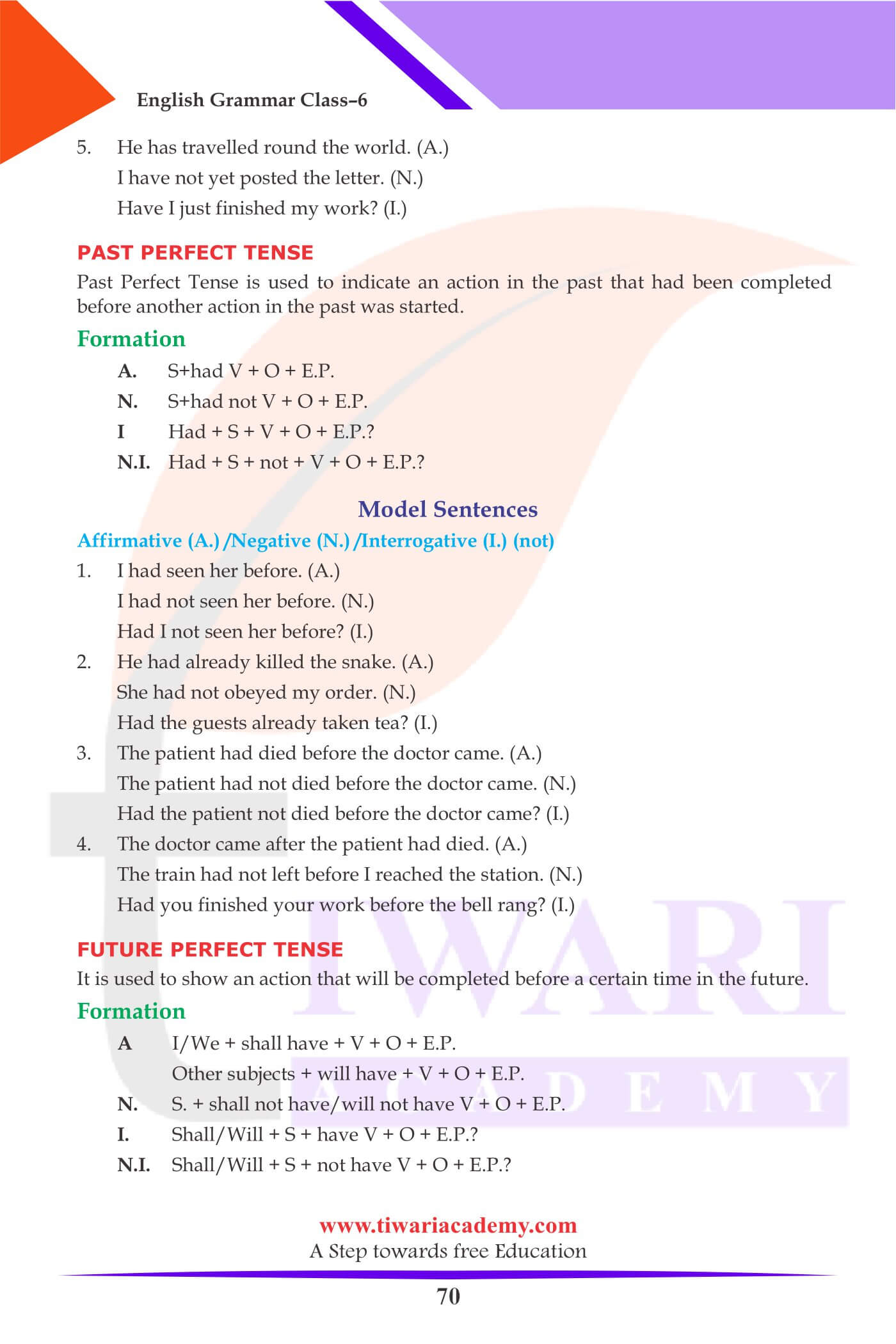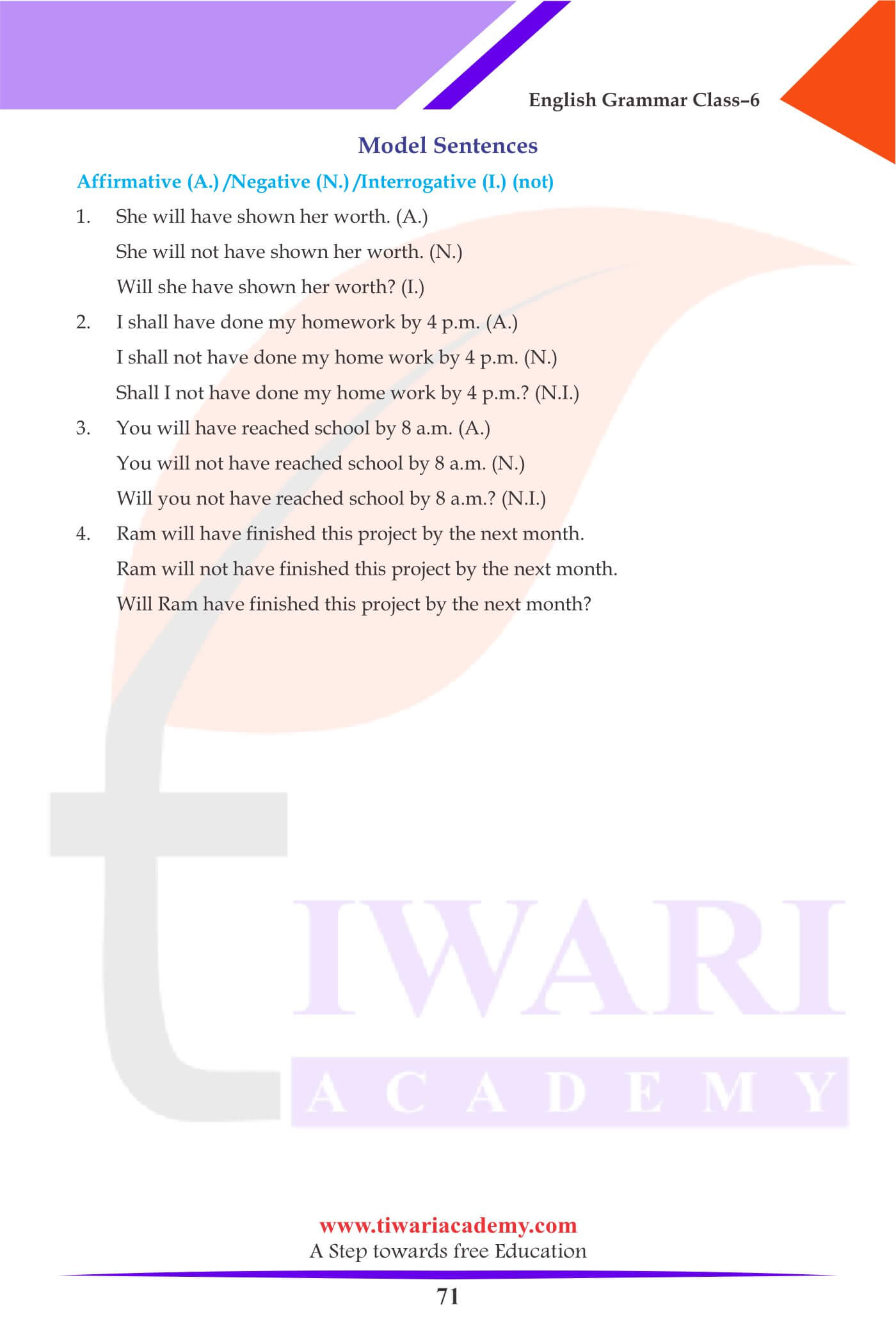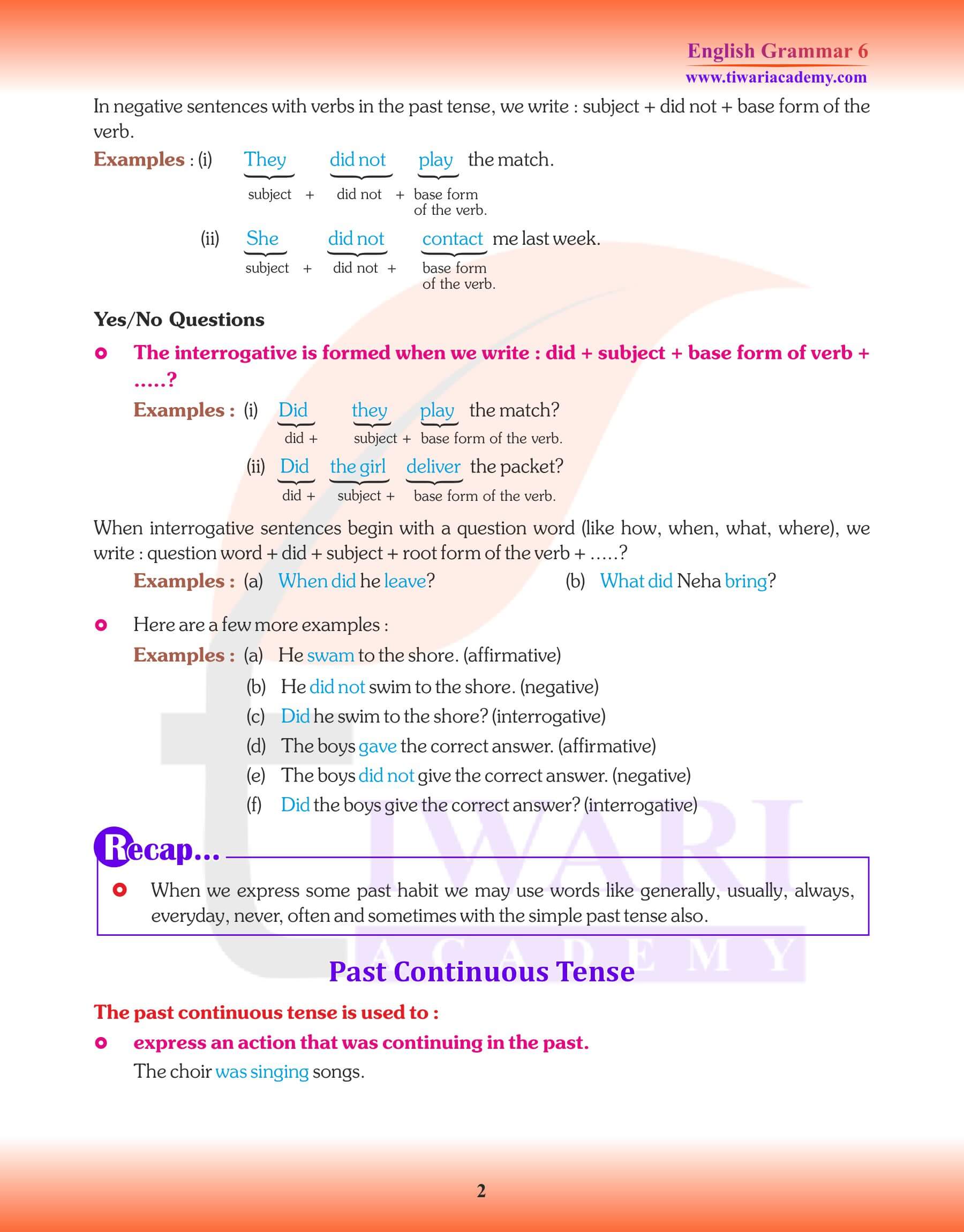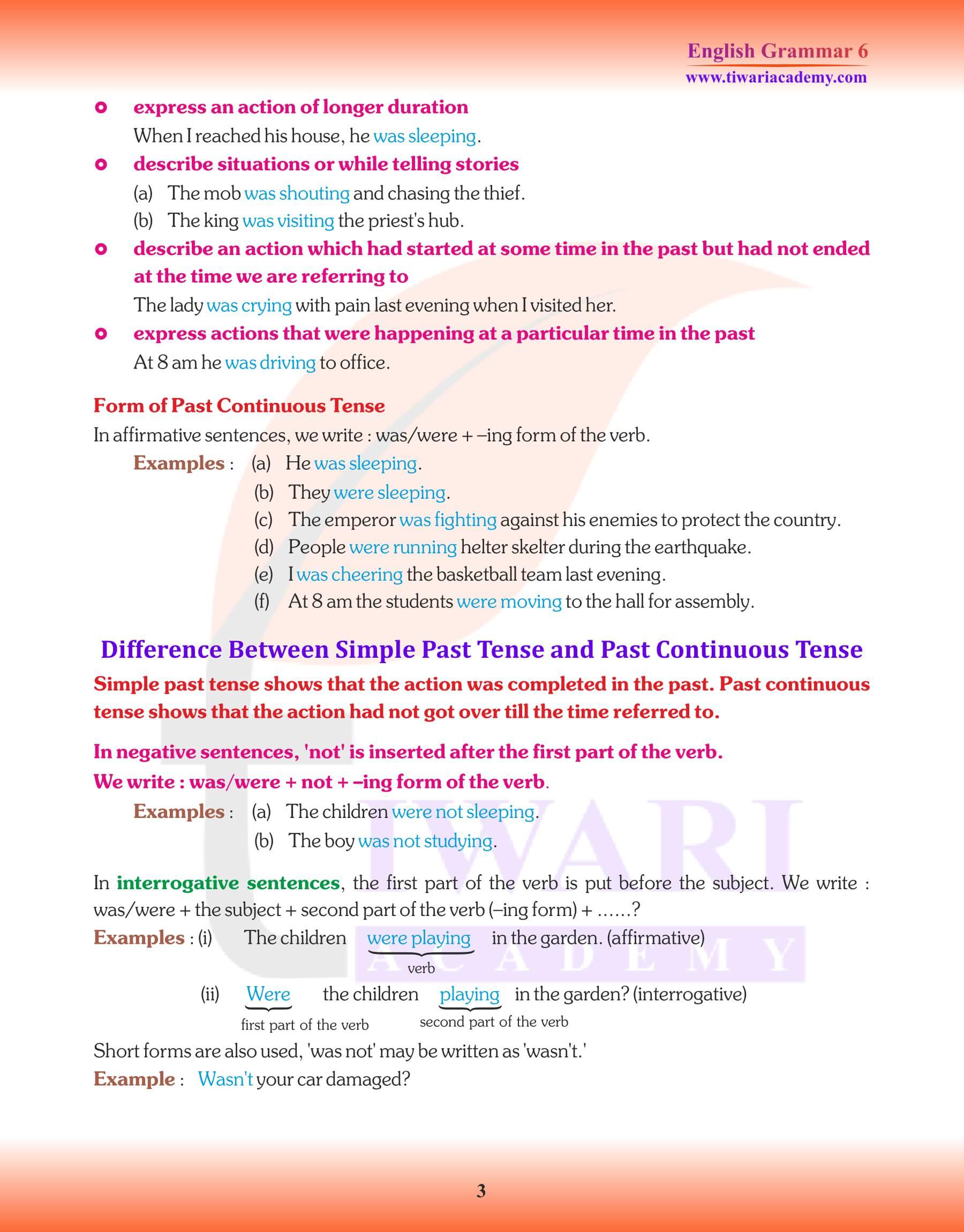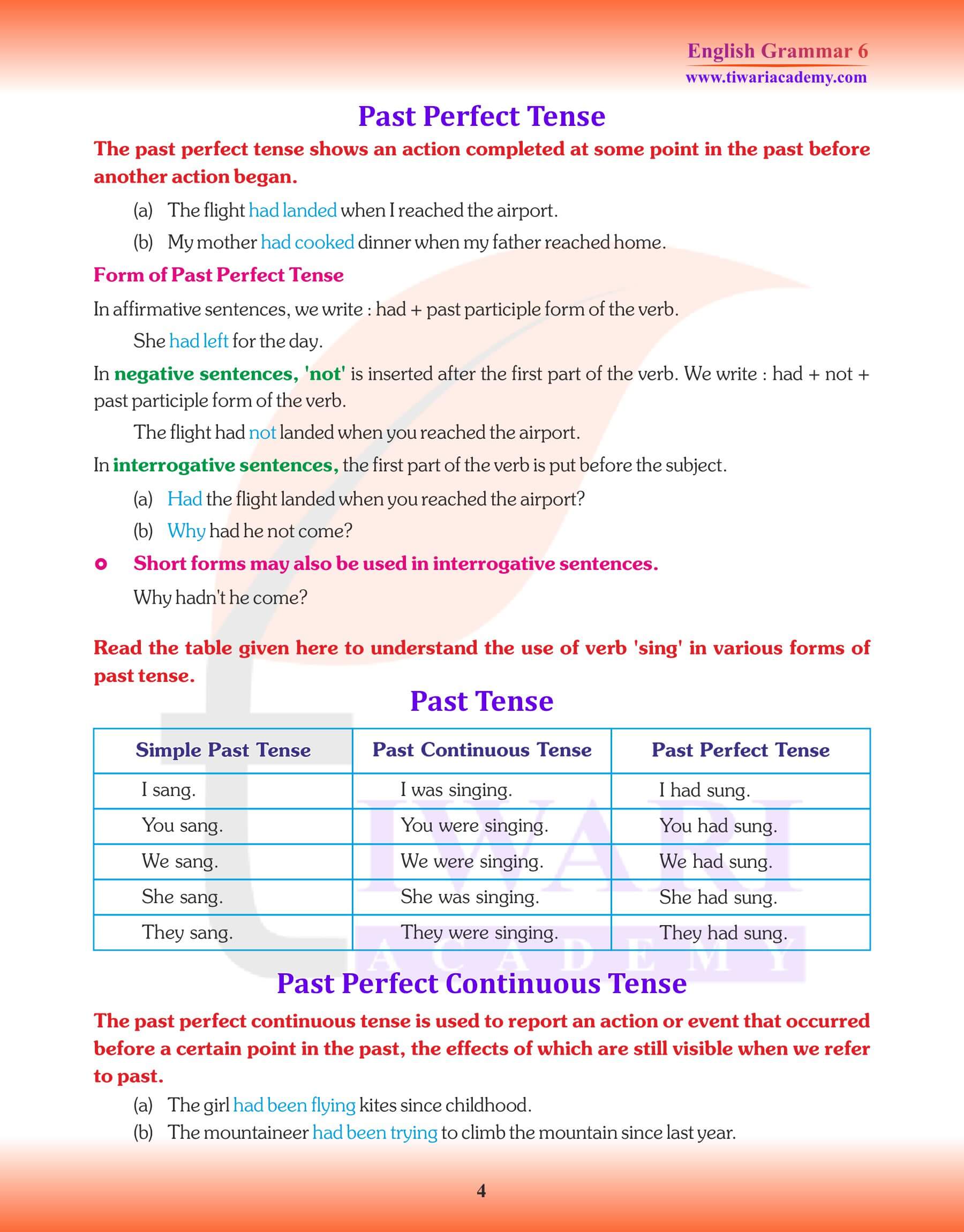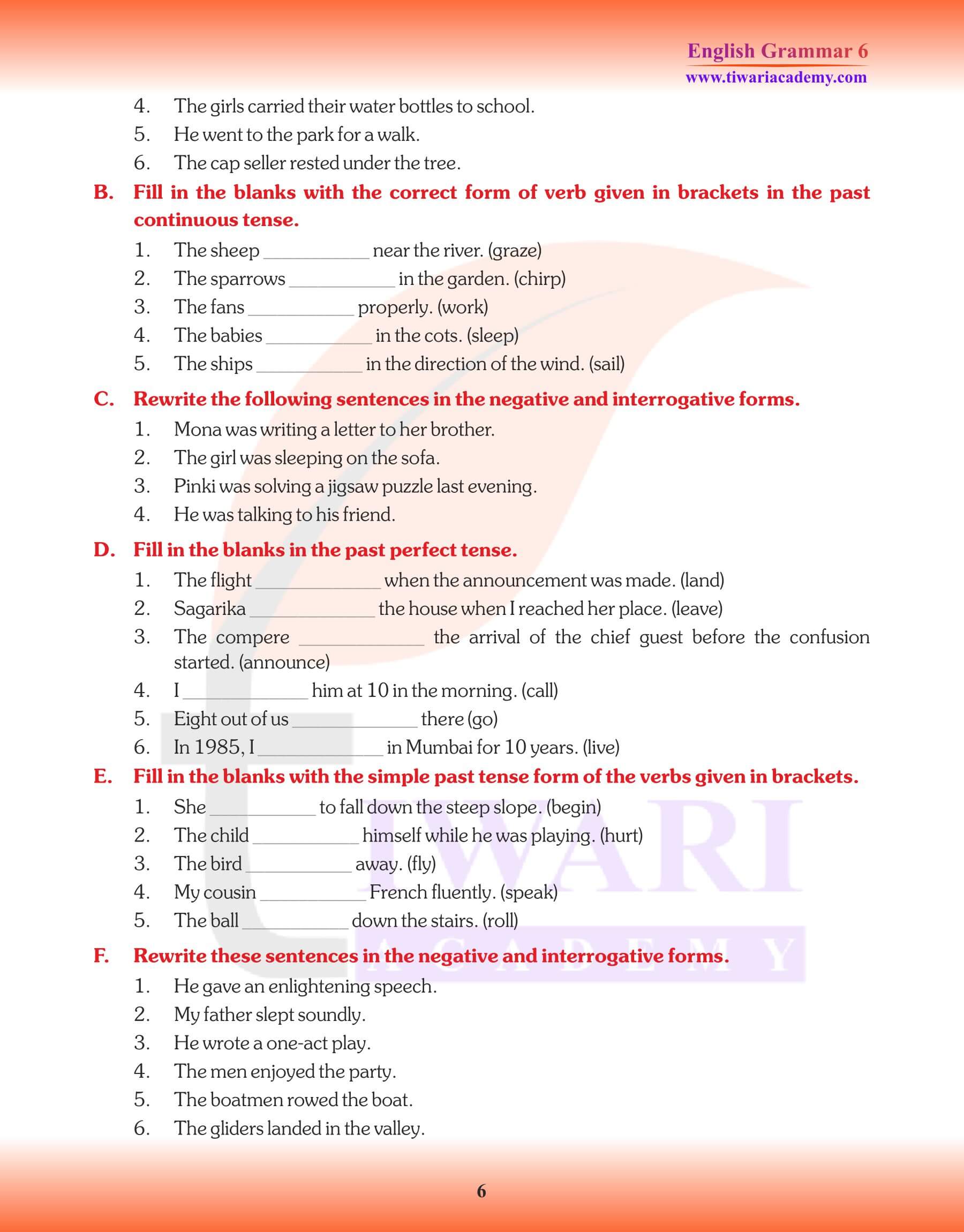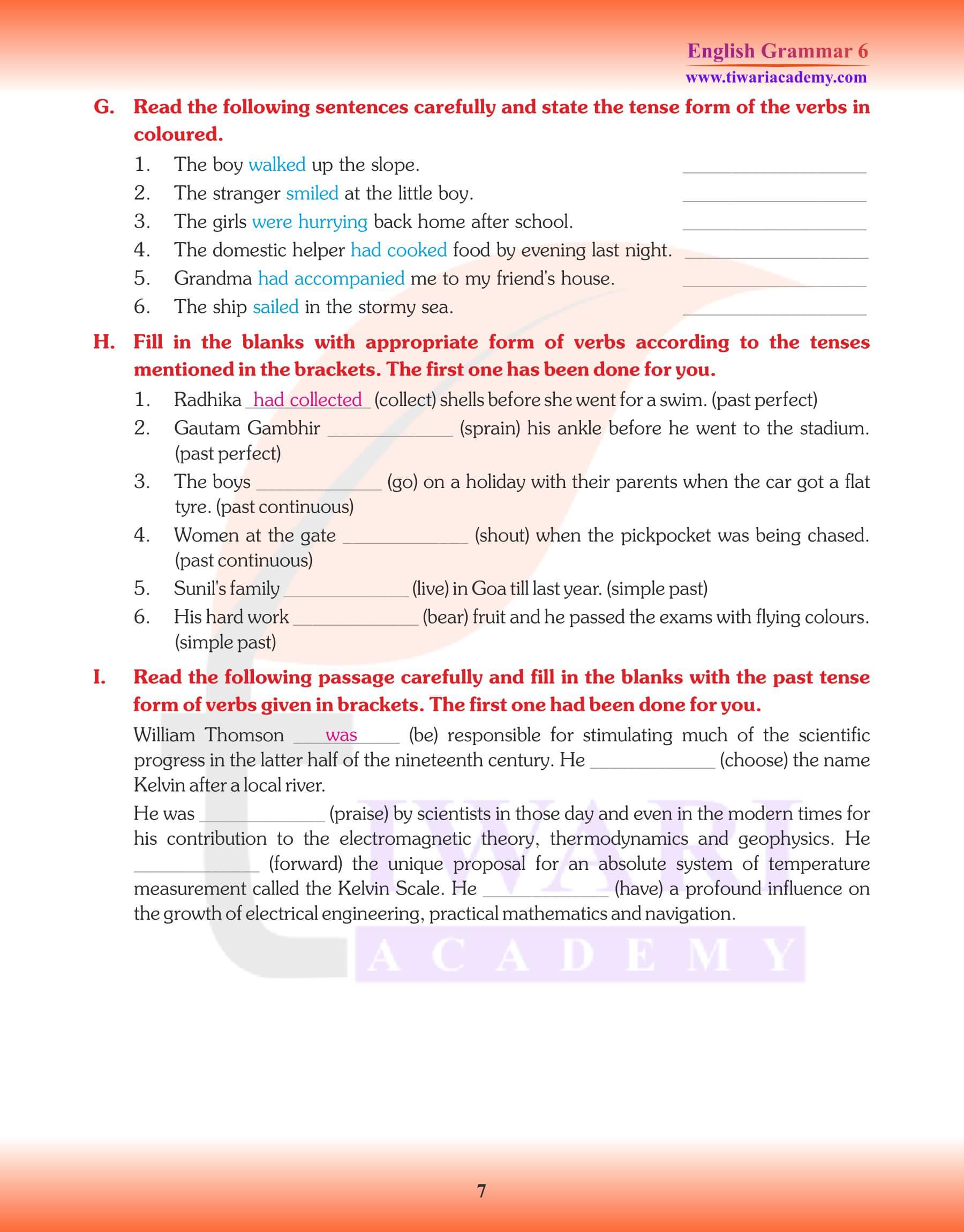Class 6 English Grammar Chapter 16 Verbs Perfect Tense, which includes explanation and examples of Present Perfect Tense, Past Perfect Tense and Future Perfect Tense. Practice questions with suitable examples and the method of explanation of formation of correct sentences using Present, Past and Future Perfect Tense.
Class 6 English Grammar Chapter 16 Present, Past, Future Perfect Tense
| Class: 6 | English Grammar |
| Chapter: 16 | Verbs – Present, Past, Future Perfect Tense |
| Textbook: | Course Book and Revision Book |
| Session: | 2025-26 |
Present Perfect Tense
The Present Perfect Tense expresses an action that was being done for quite some time but has been completed (perfected) only in the recent present time. This tense is often used with adverb like just, lately, already, recently, yet etc.
- I have done my home work. (Affirmative)
I have not done my home work. (Negative)
Have I done my home work? (Interrogative) - You have come late to school. (Affirmative)
You have not come late to school. (Negative)
Have you come late to school? (Interrogative) - He has stood first in his class. (Affirmative)
He has not stood first in his class. (Negative)
Has he not stood first in his class? (Interrogative)
Past Perfect Tense
Past Perfect Tense is used to indicate an action in the past that had been completed before another action in the past was started.
- I had seen her before. (Affirmative)
I had not seen her before. (Negative)
Had I not seen her before? (Interrogative) - He had already killed the snake. (Affirmative)
She had not obeyed my order. (Negative)
Had the guests already taken tea? (Interrogative) - The patient had died before the doctor came. (Affirmative)
The patient had not died before the doctor came. (Negative)
Had the patient not died before the doctor came? (Interrogative)
Future Perfect Tense
It is used to show an action that will be completed before a certain time in the future.
- She will have shown her worth. (Affirmative)
She will not have shown her worth. (Negative)
Will she have shown her worth? (Interrogative) - I shall have done my homework by 4 p.m. (Affirmative)
I shall not have done my home work by 4 p.m. (Negative)
Shall I not have done my home work by 4 p.m.? (Negative Interrogative) - You will have reached school by 8 a.m. (Affirmative)
You will not have reached school by 8 a.m. (Negative)
Will you not have reached school by 8 a.m.? (Negative Interrogative)

